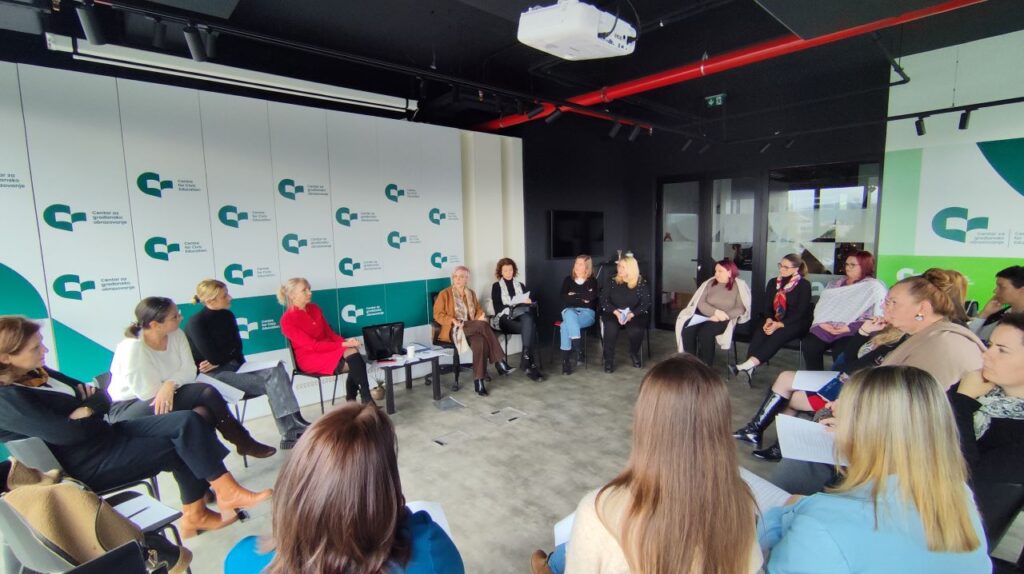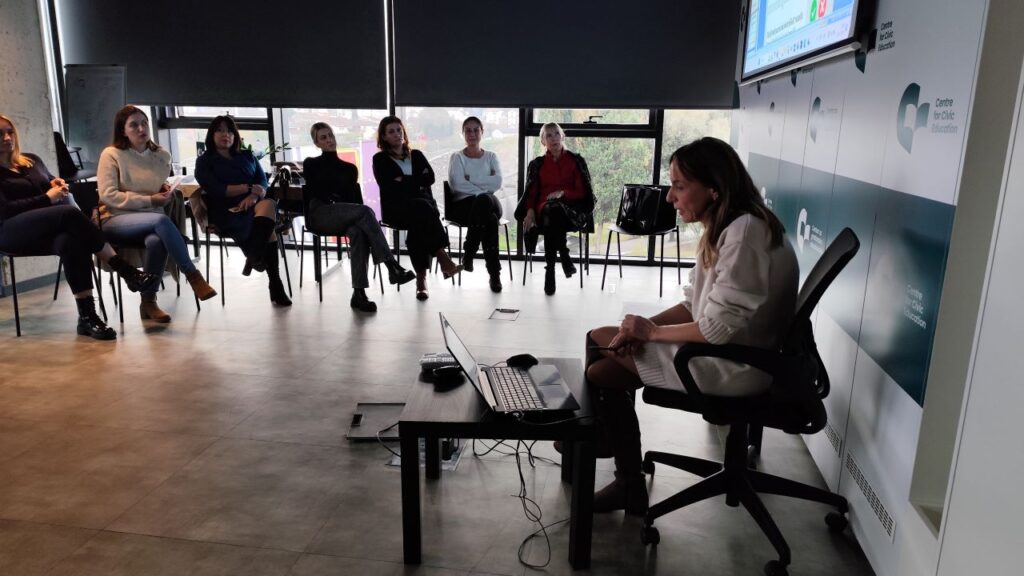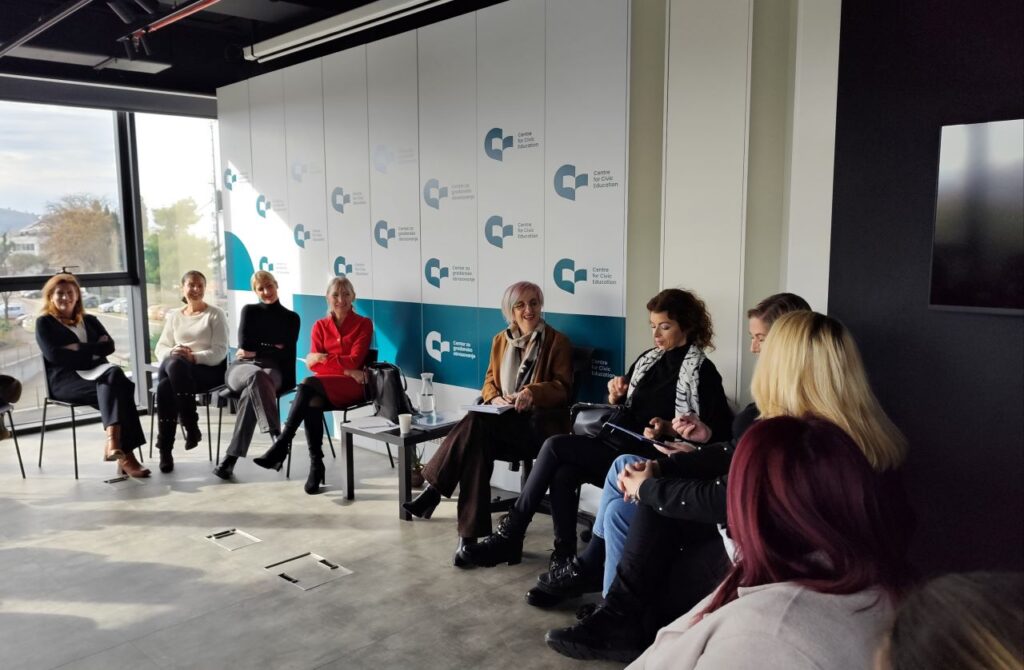Integrating gender content into the formal education system—whether as a standalone curriculum or as components within existing subjects—is essential to enable education to more effectively contribute to the development of mature and well-rounded individuals with healthy relationships toward themselves, others, and their environment. This was the conclusion of a teacher training session on teaching gender-related topics, organized today in Podgorica by the Centre for Civic Education (CCE) as part of the project Against Gender Stereotypes and Sexism!, supported by the Ministry of Human and Minority Rights.
The training gathered 18 teachers from primary and secondary schools in Tivat, Nikšić, Podgorica, Bijelo Polje, Plav, Rožaje, Berane, Ulcinj, Sutomore, and Nikšić. It provided participants with additional knowledge and methods for working with students to develop gender sensitivity and empower them for active prevention of gender-based issues in peer groups, schools, and communities. Teachers also learned how to address and recognize sexist behavior and hate speech in both media and real-life contexts, including prevention strategies and reporting procedures.
“Changes we introduce to education to better address the specific needs of girls or boys, young women or men, often mirror changes needed to enhance education quality for all. Any change that educators implement to promote gender equality through education directly improves overall education quality,” emphasized Ervina Dabižinović, Coordinator at the Center for Women’s and Peace Education ANIMA and one of the trainers. “For successful and full engagement of students in the learning process, how the content is delivered is as important as the content itself,” Dabižinović explained. She introduced basic teaching approaches that improve gender-sensitive, participatory, and inclusive learning, as well as key terminology related to gender equality policies, recommending that gender-related content be linked not only to the development of sexuality but also more broadly to building tolerance and sustainable peace.
“Sexism is pervasive in our public space—in media, politics, and society. Women are often unaware that sexist ideas and gender norms are projected not only onto other women but also onto themselves,” said Vesna Rajković Nenadić, journalist and educator from the Montenegro Media Institute. Rajković stressed that sexism creates an atmosphere where violence against women and girls begins to be tolerated. “That’s why the role of the media is crucial, as well as the role of citizens in recognizing which media outlets disseminate such content” she highlighted, reminding participants of the importance of educating the public on reporting sexist language and calling on judicial institutions to adequately enforce legal mechanisms at their disposal.
“I joined this training to improve my knowledge and skills on gender topics. The opportunity to connect and exchange experiences with other educators through specific scenarios, along with the lectures and examples provided, offered numerous insights on how classrooms can be utilized to change perceptions and make a difference. This is an inexhaustible and significant topic that I have only begun to grasp and that needs to be creatively woven into teaching content,” stated Hasija Omerbegović-Loshiq, sociology teacher at “Bratstvo-jedinstvo” Secondary School in Ulcinj.
“Participating in this seminar on gender topics was an incredibly inspiring experience. We gained profound insights into key aspects of gender equality, which empower us with knowledge and open space for constructive exchanges of ideas. The atmosphere was dynamic and motivating, and the expert trainers provided practical examples and strategies to improve social relations. I thank the organizers for the excellent execution and the opportunity to be part of this program,” said Karmen Trivundža, a CSBH language and literature teacher at “Božidar Vuković Podgoričanin” Primary School in Podgorica.
Similar impressions were shared by Senada Đešević, a CSBH language and literature teacher at the “Bećo Bašić” Secondary School in Plav. “The seminar included workshops that enhanced my pedagogical skills and facilitated the exchange of experiences with colleagues through examples of best practices. It was an excellent opportunity to deepen my understanding of gender concepts through interactive discussions. I also gained concrete tools for integrating a gender perspective into lesson plans and curricula, as well as tailored approaches for working with students of different ages,” she concluded.
Maja Marinović, Program Associate



